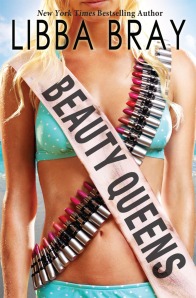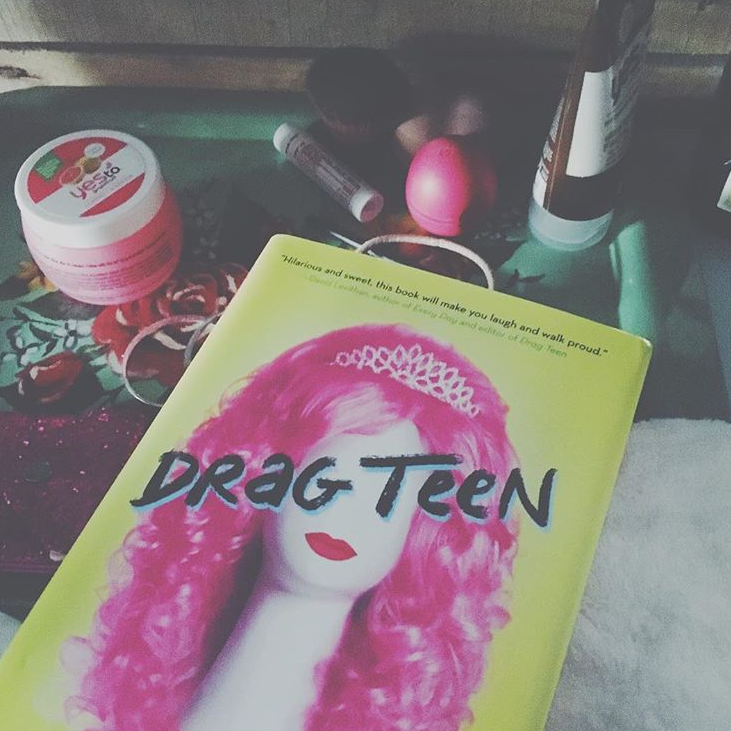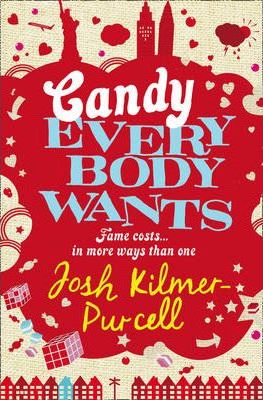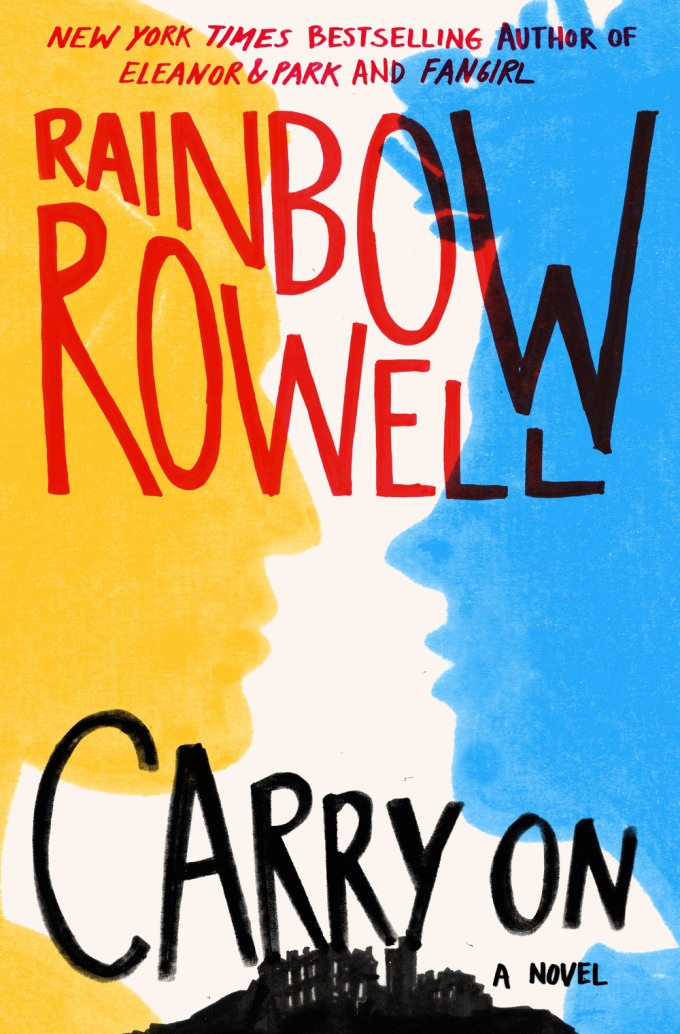Shout-out to Isaac for allowing us to use his office for our discussion; Aaron moderated the discussion.
OPENING
 Alexius thought the book was not as good as he had hoped, as he thought it could have been the female version of Lord of the Flies. He stated that it was funny for him initially; however it became cheesy and the “singing at the end spoiled the book” for him. Isaac also agreed that it was not funny and felt that the book was not catered to “people of his age.” Jiaqi thought the book was fairly entertaining, though the author did not set out to explore the presented themes in a deep manner and glossed over issues in an attempt to make it more “politically correct.”
Alexius thought the book was not as good as he had hoped, as he thought it could have been the female version of Lord of the Flies. He stated that it was funny for him initially; however it became cheesy and the “singing at the end spoiled the book” for him. Isaac also agreed that it was not funny and felt that the book was not catered to “people of his age.” Jiaqi thought the book was fairly entertaining, though the author did not set out to explore the presented themes in a deep manner and glossed over issues in an attempt to make it more “politically correct.”
At the other end of the spectrum, Javin actually read the book and declared that he liked it, comparing it to Miss Congeniality. Aaron gushed about the book too, saying that despite the “cheem” English being used, parts of the book were a “tour de force” with sublime writing.
THEMES
We first delved into the opening chapter, “A Word from Your Sponsor.” Aaron asked why did the author started with this. Alexius commented that it acted as a preface and to give context to the book. Javin felt that the chapter was meant to be ironic and read with a sense of humour. Like Alexius, he believed that the opening chapter sets the stage for the rest of the book. Both of them agreed that it was akin to the reality television format that we see nowadays.
Death was pretty imminent in the book; in fact, according to Aaron, they were too many of them. The closest explanation that we derived from this was to showcase the blood, sweat and tears to becoming beauty queens, and what their world is like in extreme situations (Javin).
From there, we moved on to why Taylor started on her killing spree. Aaron thought that the change in character was freaky; Javin felt it was too sudden and Alexius commented that Taylor may have been possessed. All three agreed that Taylor suddenly became unstable.
We also touched on the topic of race. Aaron felt there was diversification covered in the book, which got the thumbs up from him. It also highlighted racism and society as a whole. Aaron asked Shanti’s motives for being best friends with Nicole, the other minority character of the book. Javin viewed it as a strategy to win the beauty pageant, while Timmy felt it was just a minority allaying with another minority. Jiaqi opined that the two share the same challenges and thus, would be able to understand the problems if they face it together.
Jiaqi felt that the transgender issue was not treated in a “deep” manner and no serious conflicts were portrayed. Javin disagreed, highlighting that Petra was initially supposed to be cut out of the pageant due to her nature, but was eventually allowed to stay when they were stranded on the island. Aaron questioned whether the issue was sensitively handled. He also brought up the question as to why Shanti disliked and ostracized Petra. Timmy commented it may have been a case of minority versus minority, while Javin quipped that “all Indians dislike transgenders.”
We also discussed briefly on lesbianism, which Javin felt was handled too tamely compared to the other issues that were present throughout the book.
Aaron questioned whether the book was a feminist book, which got a positive response from everyone else. They all agreed that it portrayed all kinds of women – stupid women, weak women, strong women, coloured women. Aaron felt that this portrayal was “amazing” as it showed the different sides of beauty queens and not as one-note, dumb females; that behind these facades, they are smart, gung-ho women.
In comparison, the males were glossed over and came across as only two-dimensional. The pirates, in particular, were hardly portrayed (Jiaqi), only had to be hot, good looking and have abs (Javin), and were daft, scheming douches (Aaron).
CHARACTERS
Taylor
Aaron felt that the author was punishing her by turning her into a crazed killer and making her stay on the island. Javin agreed, adding on that she has the necessary skills to become Ladybird Hope. Overall, he viewed her as a sad character who may have decided to remain on the island because she “cannot win the beauty pageant.”
Jiaqi disagreed; he felt that she became more interesting due to the transformation and may have even found herself. “She became what she wanted,” Alexius quipped, from being leader of the (beauty queens) tribe to leader of the jungle.
Adina
Javin found her annoying, “high and mighty”, sarcastic and disrespectful; someone who was no better than the rest of the beauty queens. Aaron agreed, commenting that she was too moralistic and compared her to Sandra Bullock’s character in Miss Congeniality. Alexius felt there was nothing special about her.
Shanti
Javin’s favourite character; he found her “realistic” and felt that she was “interesting” due to her devious nature. Aaron, however, felt that the author made her unlikable and only used her “cultural background” to make people/ readers like her. Javin disagreed, proclaiming that Shanti “does not represent her race.”
Petra
Jiaqi thought that she was not negatively portrayed. Aaron and Javin both agreed, saying that her character was fleshed out quite well (Aaron) and she was tastefully written (Javin). Javin further added that the author gave her a good ending and allowed her to shine. Alexius agreed to a certain extent, but also found her “scary” as “transgenders may influence heterosexuals to like them.” (WHUT.)
Tiara
Jiaqi felt that she was not stupid, perhaps just “slow” in thinking and reaction.
Jennifer
According to Aaron, she was not like a typical beauty queen, although Jiaqi felt that she did not get her “happily ever after.”
Sosie
Javin viewed as a typical, normal person who struggled with her decisions and took more time to figure things out. Jiaqi felt that she was sexually experimentative, and that was fine with him, which led to Aaron asking whether she was just using Petra to figure out her sexual orientation (“any hole to poke”).
Mary Lou
Jiaqi found her to be the more interesting character of the book. Aaron thought her sexual awakening scene to be the dreamiest and sublime part of the book.
Agent Jones
Like Taylor, this character too ended up going crazy, which led to Aaron proclaiming it as his punishment for being the mastermind of the island. Jiaqi and Javin both viewed him as the bad guy of the book. Alexius felt that he was the only one to have a back story out of all the characters. Agent Jones is also Alexius’s favourite character thanks to his humorous outcome (he put on a bunny suit, had a serious exchange, and then died shortly afterwards).
Apart from Javin and Alexius, both Aaron and Jiaqi did not have any favourite characters. Aaron found them all to be unlikable and hated them, yet he still liked the book, which he felt was very difficult to achieve.
CLOSING STATEMENTS
In capping off the discussion, everyone was required to share something (good) about the book. Alexius liked the back cover and thought it showed some initial promise and meaning to the book. Javin liked the book and found it hilarious, commenting that the book did not take itself too seriously and was portrayed realistically to a certain extent. Jiaqi found the book fairly easy to read and was kept entertained. Aaron thought the book was well-written and multi-faceted, though he felt it was rather difficult to sustain a satire throughout 400 pages.
Isaac, however, found the book annoying and the humour did not bode well with him; hence he had a DNF (did not finish) stamped all over it.








 Attendance: Henry, Daniel, Alexis, Timmy, Mya, Zoe, Vicky, Pierre, Raj, Aaron.
Attendance: Henry, Daniel, Alexis, Timmy, Mya, Zoe, Vicky, Pierre, Raj, Aaron. “But it’s the mid-west! It’s the mid-west!” — Pierre.
“But it’s the mid-west! It’s the mid-west!” — Pierre. Sappho’s Fables is a collection of three revisionist fairy tales (Snow White, Rapunzel, and Hansel and Greta) given a lesbian twist. Timmy, Shawn, Reynard, and Aaron thought that although it’s not written in a literary form, it is enjoyable. The authors have changed much details from the fairy tales, making it unexpected.
Sappho’s Fables is a collection of three revisionist fairy tales (Snow White, Rapunzel, and Hansel and Greta) given a lesbian twist. Timmy, Shawn, Reynard, and Aaron thought that although it’s not written in a literary form, it is enjoyable. The authors have changed much details from the fairy tales, making it unexpected. Dunno what nth discussion because someone hasn’t written the past discussions yet. *passive aggressive mode on* Just kidding.
Dunno what nth discussion because someone hasn’t written the past discussions yet. *passive aggressive mode on* Just kidding. These are some of the things we talk about:
These are some of the things we talk about:
 Alexius thought the book was not as good as he had hoped, as he thought it could have been the female version of Lord of the Flies. He stated that it was funny for him initially; however it became cheesy and the “singing at the end spoiled the book” for him. Isaac also agreed that it was not funny and felt that the book was not catered to “people of his age.” Jiaqi thought the book was fairly entertaining, though the author did not set out to explore the presented themes in a deep manner and glossed over issues in an attempt to make it more “politically correct.”
Alexius thought the book was not as good as he had hoped, as he thought it could have been the female version of Lord of the Flies. He stated that it was funny for him initially; however it became cheesy and the “singing at the end spoiled the book” for him. Isaac also agreed that it was not funny and felt that the book was not catered to “people of his age.” Jiaqi thought the book was fairly entertaining, though the author did not set out to explore the presented themes in a deep manner and glossed over issues in an attempt to make it more “politically correct.”
